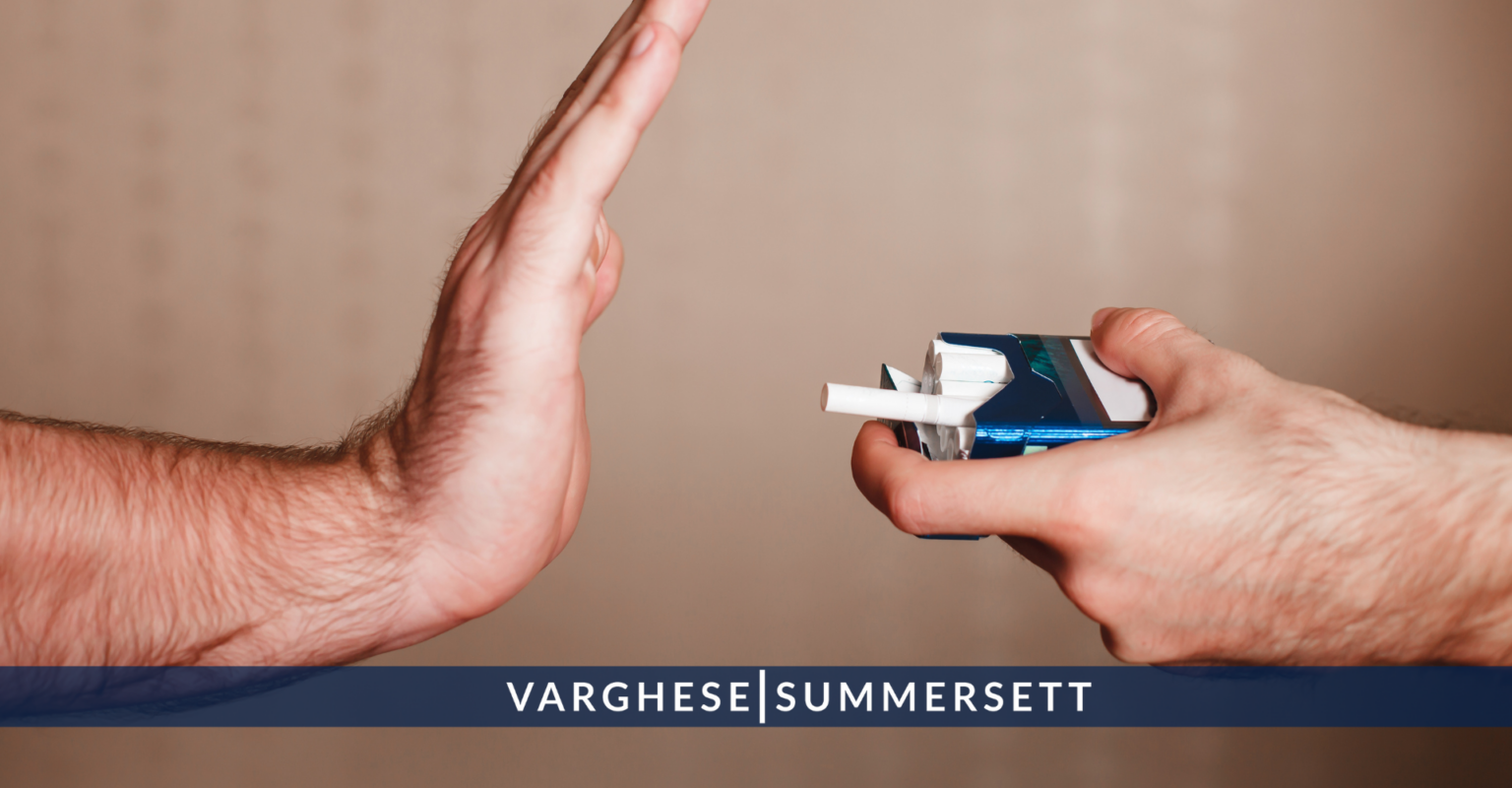
Courtroom Etiquette 101: The Do’s And Don’ts Of The Courtroom
For one reason or another, just about everyone will enter a criminal courtroom at some point in their lives. Whether you’re a defendant, a potential juror, or a college student researching a class assignment, proper courtroom etiquette is required.
Saying, doing, or wearing the wrong thing in court is a surefire way to get shown the door — or in extreme instances, end up behind bars for contempt of court.
Here’s a look at basic courtroom etiquette rules and how some judges laid down the law for breaches of decorum.
1. Turn off cell phones.

Just about every courthouse in the country has signs prohibiting phones or warning visitors to turn them off. Despite these announcements, phones routinely go off in court and disrupt proceedings.
In 2004, a 17-year-old defendant facing a drug charge was sentenced to 21 days in jail for contempt of court when her cell phone rang after the Judge warned everyone in the courtroom to turn off their electronic devices.
“If you don’t know how to shut it off, go outside and introduce it to the heel of your shoe,” New York District Court Judge Salvatore Alamia said, according to an editorial in the Pitt News.
A decade later in Michigan, another Judge took a hard line against cellphone violations — his own.
Judge Raymond Voet held himself in contempt of court and assessed a $25 fine in April 2013 after his phone interrupted a prosecutor’s closing argument. Voet has a policy posted in his courtroom, announcing that ringing phones will be confiscated and returned only after a $25 fine is paid.
“I detest distraction in the courtroom and here it happened to me,” Voet told ABCNews.com. “…I felt my face starting to burn red.”
2. No food, drink, gum, or tobacco in court.

Back in the day, it wasn’t uncommon for Judges and attorneys to light up in chambers or even during a trial. These days, tobacco, food, drink, and gum, is strictly prohibited in most courtrooms.
E-cigarettes should also be left at home.
In 2013, a Grand Rapids, Michigan, woman was asked to leave Judge James Redford’s courtroom after a deputy spotted her using her phone and taking puffs from an E-cigarette.
“I’m going, dammit,” she responded loudly, a reaction that didn’t sit well with the Judge.
According to MLive.com, the Judge ordered her into custody and, later during a contempt hearing, asked her if she wanted to say anything before she was sentenced.
“I just thought it was totally retarded that I can’t smoke my E-cigarette,” she replied. “I can smoke it on the bus. You can smoke them anywhere.”
The Judge sentenced the woman – who was wearing what appeared to be pajamas – to five days in jail and assessed a $250 fine.
3. Dress appropriately.

People entering a courtroom should be dressed in a manner that shows dignity and respect for the court. Save caps, cut-offs, T-shirts with marijuana leaves, spandex, low-cut blouses — and yes, pajamas — for another day.
Some courts have stricter dress codes than others.
Take Municipal Judge Kevin Madison, of Lakeway, Texas. In 2010, Madison made headlines for banning boots in his courtroom. He lifted the ban, however, after the Austin American-Statesman caught wind of it and printed a story, creating a Texas-sized dustup.
“Oh my goodness, you would have thought I was renaming the state…New Jersey or something,” Madison told the paper.
Because Judge’s have wide discretion to create specific rules for their court, it’s always a good idea to find out the dress code before you go. For example, one judge may allow defendants to wear jeans in their courtroom, while a different judge in the same building strictly forbids it.
Suffice to say, saggy jeans are almost always a “DON’T.”
In April 2012, an Alabama defendant charged with stolen property was cited for contempt and jailed because he “showed his butt in court.” Judge John Bush didn’t appreciate his low hanging pants, according to The Smoking Gun.
“You can spend three days in jail,” the Judge told the defendant. “When you get out you can buy pants that fit, or at least get a belt to hold up your pants so your underwear doesn’t show.”
4. Stand when the judge enters the courtroom.

Judges not only represent the ultimate authority of the court, but also the law. Standing when a judge enters the room or the bailiff calls “all rise” is intended to show respect for the legal system.
In October 2011, a Muslim woman on trial for terrorism-related charges was found in contempt of court and ordered to spend 100 days in jail after refusing to stand each time the federal Judge entered or left his Minneapolis courtroom. She cited religious freedom as her reason for staying seated, according to a story in The Wall Street Journal.
U.S. District Judge Michael Davis was unfazed.
“You may have an interpretation of your religion that says you cannot rise, but I can tell you that the law of the United States is clear that the freedom of religion does not keep you from rising and following the decorum of the court,” he told her.
After serving two nights in jail, the defendant began to comply with the Judge’s order and was released.
5. Leave the kids at home.

Generally speaking, court is not a place for children. Not only are observers required to sit and be quiet for long periods of time, but the subject matter and testimony that comes from the bench and witness stand is usually not suitable for kids.
Many jurisdictions expressly forbid children in the courtroom and there is no daycare service. In Tarrant County, Texas, for example, there are 12 local rules of conduct that everyone must follow when entering a felony court. “No children” is on the list.
6. No reading newspapers, propping feet on tables or chairs, or napping.

The courtroom is a serious place. Respect for the dignity and authority of the court should be shown at all times. Rustling newspapers, propping up feet, or nodding off is inappropriate.
In 2005, a potential juror got a rude awakening when he was fined for letting out a loud yawn during jury selection in a Los Angeles courtroom, according to the Los Angeles Times.
“I’m sorry, but I’m really bored,” the juror told Superior Court Judge Craig Veals when questioned about his audible yawn.
“I’m sorry?” repeated the judge. “Your boredom just cost you $1,000…I’m finding you in contempt.”
The judge later reduced the fine to $100 but not before detaining the juror for two hours.
7. No overt advertising, campaign buttons or campaign material are permitted in the courtroom.

At least one federal circuit has held that judges have the authority to ban political buttons in the courtroom.
In July 2015, an Ohio judge did just that — and made national headlines. Youngstown Municipal Court Judge Robert Milich jailed Andrea Burton, a black female attorney, for refusing to remove a Black Lives Matter pin, according to WKBN. Finding the button too political and provocative for the courtroom, the Judge held Andrea Burton in contempt and sentenced her to five days in jail after she refused his order to remove her pin. Although Burton was handcuffed, she was released while the decision was appealed. The matter has since been resolved, with the judge agreeing to dismiss the contempt citation and the attorney agreeing to dismiss the appeal.
8. No courtroom outbursts.

Emotions run high in courtrooms, especially when decisions and verdicts can be life-altering. Still, courtroom decorum requires all parties to refrain from gestures, facial expressions, or outbursts.
In 2010, Texas District Court Judge George Gallagher jailed defendant Robert Washington – and his mother – for contempt of court after they whooped and hollered after jurors acquitted him of murder.
According to the Associated Press, the defendant “did his celebration dance,” while his mother “jumped up and gave high-fives to the people around her.”
“It was as if he had caught the winning touchdown and spiked the ball in front of the defensive back,” Judge Gallagher told the news outlet. “All I saw was the physical response, and it was totally inappropriate.”
Two years later, a different murder defendant in another Fort Worth courtroom had the opposite reaction to a punishment verdict.
In 2012, defendant Broderick Patterson was removed from state District Judge Robb Catalano’s court after he erupted with anger and shouted a stream of obscenities after jurors sentenced him to life in prison for fatally shooting a Fort Worth honor student. His outburst was captured on video by NBC 5 and other news media covering the trial.
“I love you, Mama,” Patterson yelled. “All y’all on the jury, f— yall! …State, f— you too!”
Attorney Christy Jack, the prosecutor on the case who now works as a defense attorney for Varghese Summersett PLLC, said Patterson’s behavior in court illustrates why rules and decorum are so important.
“In court, people’s lives and livelihood are often on the line,” said Jack whose legal career has spanned more than two decades. “The stakes are high and anything can happen. Maintaining decorum in and around the courtroom not only ensures the public’s safety, but is essential to the fair administration of justice.”
Preparing for Your First Criminal Court Setting?
Check out this helpful video from Criminal Defense Attorney Benson Varghese, explaining what you need to know about going to court.
For additional questions, contact us at 817-203-2220 or reach out online.



